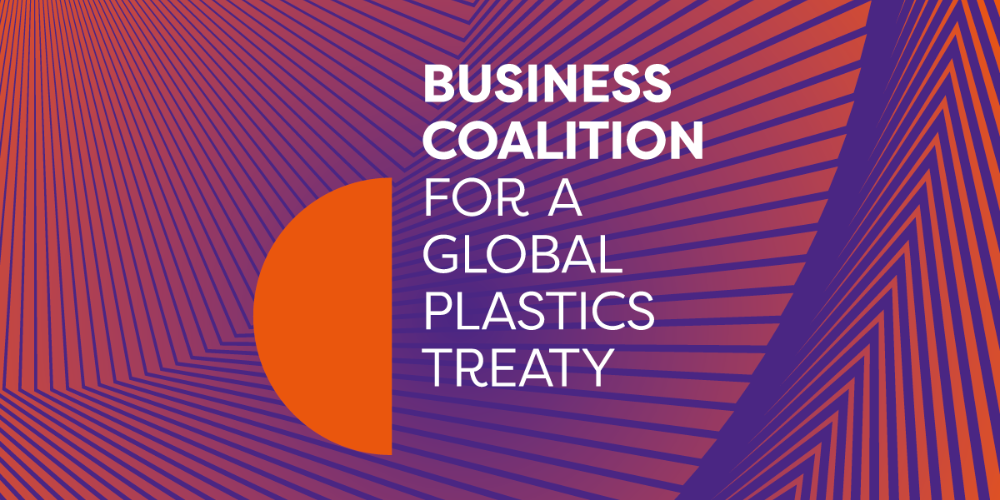In March of 2022, Heads of State, Ministers of environment and other representatives from UN Member States endorsed a historic resolution at the UN Environment Assembly in Nairobi to End Plastic Pollution and forge an international legally binding agreement by 2024. The resolution addresses the full lifecycle of plastic, including its production, design and disposal. The voice of business will play an important role in providing input to this process, working together with governments and other interested parties.
The Healthcare Plastics Recycling Council (HPRC) proudly announces its support for the Business Coalition for a Global Plastics Treaty, an initiative convened by the Ellen MacArthur Foundation and WWF since September 2022.
With this support, HPRC joins over 200 businesses spanning the plastics value chain, financial institutions, and NGO partners, amplifying the call for an effective UN treaty that transitions plastics into a circular economy, preventing them from becoming pollution.
“Plastics are critical to effective global healthcare, and while healthcare plastics are just one small portion of the collective plastic pollution problem our world is facing, there are unique challenges and opportunities associated with these materials,” shared Peylina Chu, Executive Director of HPRC. “Supporting the Business Coalition for a Global Plastics Treaty allows organizations like HPRC to have our voices amplified and contribute to the greater goal of a circular plastics economy.”
The Business Coalition for a Global Plastics Treaty represents a diverse array of stakeholders committed to driving transformative change through the “Zero Draft” for a Global Plastics Treaty. The draft treaty text outlines various options aimed at advancing reduction, circulation, prevention, and remediation efforts in alignment with the coalition’s vision.
The UN Member States signaled the urgent need for a solution by establishing an aggressive timeline for development of an agreement. With under one year of negotiating time remaining, the Intergovernmental Negotiating Committee (INC) must prioritize the development of a treaty that enables gradual strengthening and future expansion of policy measures. It is imperative that the final treaty sets a course for immediate and sustained action to address plastic pollution on a global scale.
HPRC recognizes the critical importance of collective action in addressing the plastics crisis. By aligning with the Business Coalition for a Global Plastics Treaty, we reaffirm our commitment to driving meaningful change within the healthcare industry and beyond.
For more on the work and progress of the coalition, visit https://www.businessforplasticstreaty.org/
About HPRC
HPRC is a private technical coalition of industry peers across manufacturing, healthcare, and recycling industries seeking to improve the recyclability of plastic products within healthcare. Made up of brand-leading and globally recognized members, HPRC explores ways to enhance the economics, efficiency, and ultimately the quality and quantity of healthcare plastics collected for recycling in support of a circular plastics economy. HPRC is active across the United States and Europe working with key stakeholders, identifying opportunities for collaboration, and participating in industry events and forums. For more information, visit www.hprc.org and follow HPRC on LinkedIn.
About The Conveners
WWF is one of the world’s leading conservation organizations, working in nearly 100 countries for over half a century to help people and nature thrive. With the support of more than 5 million members worldwide, WWF is dedicated to delivering science-based solutions to preserve the diversity and abundance of life on Earth, halt the degradation of the environment and combat the climate crisis.
Visit http://www.worldwildlife.org to learn more and keep up with the latest conservation news by following @WWFNews on Twitter.
The Ellen MacArthur Foundation is an international charity that develops and promotes the circular economy in order to tackle some of the biggest challenges of our time, such as climate change, biodiversity loss, waste, and pollution. The Foundation works with its network of private and public sector decision-makers, as well as academia, to build capacity, explore collaborative opportunities, and design and develop circular economy initiatives and solutions. Increasingly based on renewable energy, a circular economy is driven by design to eliminate waste, circulate products and materials, and regenerate nature, to create resilience and prosperity for business, the environment, and society.
Further information: www.ellenmacarthurfoundation.org | Twitter: @circulareconomy | LinkedIn: Ellen MacArthur Foundation | Instagram: @ellenmacarthurfoundation

